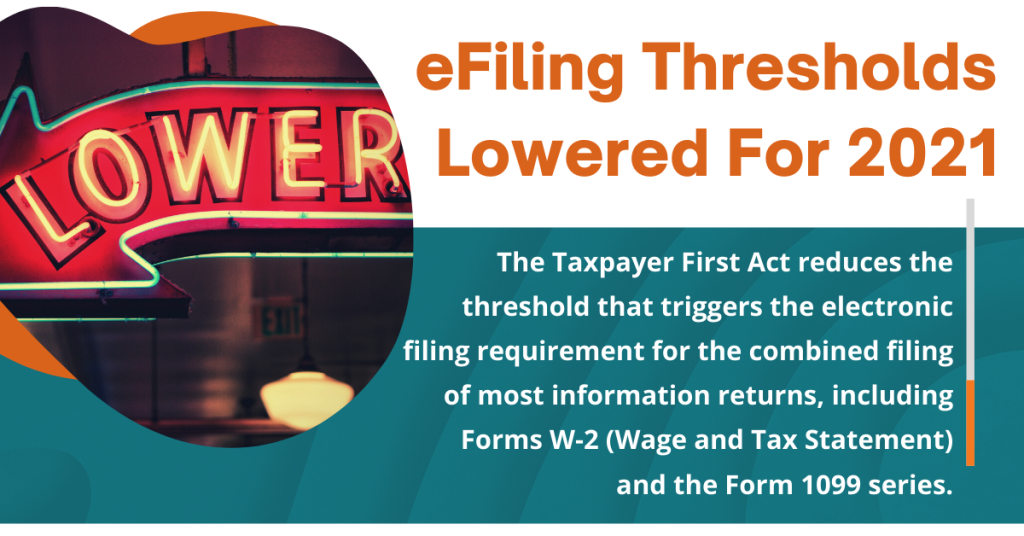
To modernize the IRS and improve the efficiency of the taxpayer experience when filing payroll taxes, the Taxpayer First Act was signed into law on July 1, 2019. This act proposes wide-sweeping changes in the filing requirements affecting many small businesses in the U. S.
The Taxpayer First Act reduces the threshold that triggers the electronic filing requirement for the combined filing of most information returns, including Forms W-2 (Wage and Tax Statement) and the Form 1099 series.
Scheduled Changes To The Threshold
The number of businesses allowed to file paper reports will be dramatically reduced over the next two years. The Taxpayer First Act mandates that by 2022 businesses with as few as 10 employees will no longer be able to submit paper forms. Currently, electronic filing is mandatory if the employer has 250 or more forms to file.
- In 2021, the number drops to 100 forms.
- In 2022, businesses filing just 10 or more forms must electronically file.
Many states will likely adopt the same rule for unemployment, wage withholding, and state W-2s.
Official instructions for the revised filing thresholds will be released in the upcoming months.
